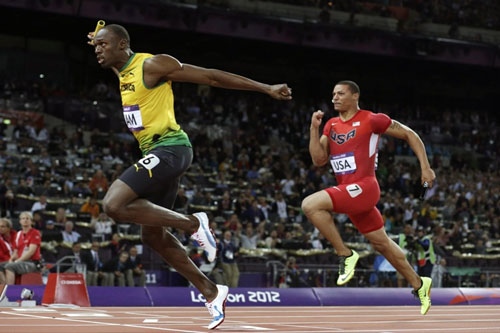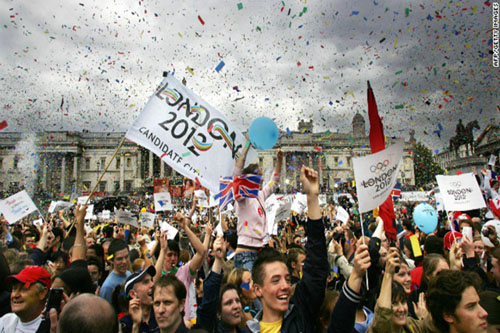Looking Over the Walls of the Stadium
<#320 Spotlight>
Intangible Power of Sport
Looking Over the Walls of the Stadium
By Bae Mi-kyung, Director of Marketing and International Affairs,
Gwangju Summer Universiade 2015 Organizing Committee
What is the first thing that comes to your mind when you think of sport? Most definitely, it would be a sports scene and exciting actions on the ground. It was not an exception for me; I cannot help but to cautiously admit that I merely conceived sport as an activity on a sports ground and that never had I thought of it as a field in science nor as a business domain.
Regardless, sport these days has evolved into much larger phenomenon that extends beyond the boundaries of sport; it has conjoined with a vast array of fields from the media, marketing, medicine and even into politics and diplomacy. Prominent colleges around the world recognized the growing demand for sport in various fields and have created new divisions of study such as Sports Industry and Sports Diplomacy in the midst of an ever increasing public interest. This implies that now the time has come where sport is no longer considered as simply an activity on a sports ground.
For the last five years of preparing for the Universiade scheduled to be held in Gwangju in 2015, I have come to know the potential of sport as a platform and window to the various opportunities just as it has given me an opening to gain a new insight and perspective on sport.

Every four years, we experience the power of sport called ‘the Olympics,’ and year 2012 is that year of the Olympics. Last July and August, the eyes of seventy billion people were directed to London. New sports stars who overcame the limits and endurance of human spirit and body and numerous inspiring Olympic stories emerged. On the day that the Gwangju born athlete Yang Hak-seon earned the nation its first gold medal in gymnastics, 52 years after the Korean gymnastics team first debuted in the Olympics, his poor conditions living in a vinyl greenhouse and his filial piety became an issue around the world moving the hearts of many. In this regard, Sport is a powerful language that moves the heart. It is a universal language that brings the world together and the Olympics is the very proof of that.
For the first time in the history of the Olympics, there was a surprise event during the London Olympics as the Secretary-General of the United Nations participated in the Olympic torch relay and marched into the Olympic stadium holding the Olympic flag. At this point, it is necessary for us to give attention to the recent United Nation’s active involvement in sport activities. Since 2001, the United Nations has been focusing on sport in its capacity as a tool for facilitating education, health, development and peace, and from 2003, it has been harnessing such power of sport partly through the United Nations resolution. The Secretary-General Ban Ki-moon is quoted as saying, “Sport has become a world language, a common denominator that breaks down all the walls, all the barriers. It is a worldwide industry whose practices can have a widespread impact. Most of all, it is a powerful tool for progress and development.”
On July 10th, Gwangju Universiade Organizing Committee and the United Nations came together and signed an agreement to share the vision and efforts in forming the united Korean team at 2015 Gwangju Universiade. They will also initiate an international youth mentoring program where the values of sport in the fields of environment, peace, IT innovation, culture and development can give inspirations to the world youth. It is to exert a greater linguistic power of sport by sharing the intangible values of sport with the next-generation.
Speaking with a more business centered mindset, sport is money. According to World Development Indicators assessed by World Bank from the United Nations’ report on sport for development and peace, Sport for Development and Peace: Towards Achieving the Millennium Development Goals (2003), the sports sector is valued at US$ 36 billion and is predicted to expand by 3 to 5 percent per year. The above number includes values measured from the direct effects from the manufacture of sporting goods, sport-related services, infrastructure development and sports events as well as from the supplementary effects from spectators, sponsors, vendors and the media. These elements in the sports economy are all interconnected.

Well-known sports events such as the Olympics, World Cup, Asian Games, Universiade and other sports games we enjoy are a kind of well-made product in and of themselves. These products induce construction of facilities and tremendous investments in advertisement and media from business sectors, and create profits from spectators and derivatives with event’s symbols such as logos and mascots. In the case of the Olympics, revenues are generated from three main areas – broadcasting, partnership, ticket sales and licensing – and among the three, broadcasting right sales make up half of the whole revenue. Sporting events combined with the media are reborn as so-called money-making business.
In Korea, for sports events of an international scale, 30% of the whole of expenses are financed by the central government, 30% are from the hosting city and 40% are generated by the revenue-making businesses. Due to such financial structure, without sports marketing, it is practically impossible to make the events successful. Sponsorship which licensing of events’ official symbols and logos are sold and the rights and benefits of partners are protected in return is ‘a must’ to cover the expenses for the events operations. For such reasons, marketing is a key factor in sports events’ success.
In addition, sports events have the potential for industrial expansion. Through the event called the Olympics, numerous sports related businesses including sports goods and sports equipment as well as sports consulting, facilities construction, cultural event, visual industry etc. grow to form a sector in the country’s economy.
SportAccord, the world’s largest sports convention, is the place to see the sport’s industrial potential in one sight. I had a chance to attend the SportAccord twice while I was preparing for the Universiade event, and as befitted to its prestige, the convention presented a vast overview of international sports organizations and fast expanding sports related industries, including that of the International Sports Federation and other sports event organizers, host cities, sports media and sports industries.
Through these two valuable experiences, I was able to understand the dynamics of sport that takes place outside of the stadium and the potential growth of sport. The convention is attended by around eighteen hundred international key sports figures making the venue a place of extensive exchanges. Also at the convention, important decisions in the sports world are made along with events that attract the media’s attention such as the IOC executive board meeting and the Olympics host city announcement.
To sum up, sport is the most powerful language that connects the world. International sports events that bases on such features of sport is like the living blue ocean with tremendous possibilities of industrial development and expansion into the broader world. Only those who see the intangible power of sport will find a path to the blue ocean.
배미경 광주U대회 조직위 국제마케팅부장
tribune@cnumedia.com

